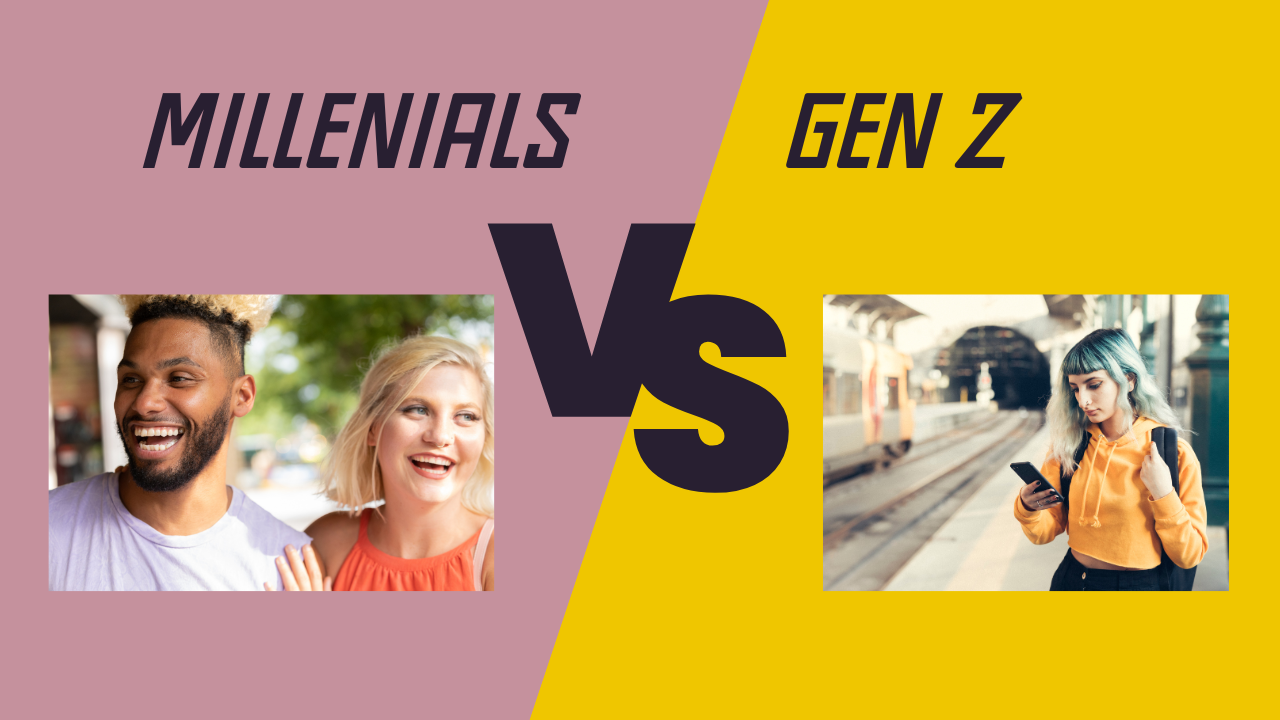Why Gen Z Looks Older Than Millennials: An Analysis
This article explores the reasons why Generation Z often appears older than Millennials at the same age. It delves into factors such as makeup and fashion trends, early adoption of adult behaviors, stress and anxiety, and the conscious rejection of youthful aesthetics

In recent years, a noticeable trend has emerged: members of Generation Z often appear older than Millennials at the same age.
This phenomenon can be attributed to a blend of factors, including makeup and fashion trends, early adoption of adult behaviours, stress and anxiety, and a conscious rejection of youthful aesthetics.
Understanding these influences sheds light on the cultural and societal shifts that shape the identities of these generational cohorts.
Makeup and Fashion Trends
Gen Z's approach to makeup and fashion significantly contributes to their older appearance. Unlike Millennials, who favoured natural and minimalistic looks in their youth, Gen Z embraces more mature and sophisticated styles. Heavy contouring, bold lip colours, and dramatic eye makeup are staples of Gen Z's beauty routine, projecting a more adult image.
Fashion choices further enhance this mature aesthetic. Gen Z trends include oversized blazers, tailored suits, and sleek hairstyles, all of which lend a polished, adult look. This contrasts sharply with the casual and youthful styles that characterized Millennial fashion, such as athleisure and bohemian chi.
Gen Z's popularity of thrifting and vintage styles also contributes to this effect, as they often select timeless, classic pieces that exude a more grown-up vibe.
Early Adoption of Adult Behaviors
Growing up with constant internet and social media access has exposed Gen Z to mature content and adult behaviours at a much younger age than previous generations. This early exposure has accelerated their adoption of "grown-up" mannerisms, attitudes, and fashion choices. Gen Zers often emulate behaviours traditionally associated with older adults, from consuming sophisticated media to engaging in adult conversations online.
The influence of social media platforms like Instagram and TikTok cannot be overstated. These platforms are flooded with influencers and celebrities who often portray an idealized adult lifestyle, setting a standard many young people strive to emulate. This trend pushes Gen Z to adopt mature behaviours and styles much earlier than Millennials.
Stress and Anxiety
Gen Z faces significant academic pressure, economic uncertainty, and global issues like climate change, contributing to high levels of stress and anxiety from an early age. Research indicates that chronic stress can accelerate visible signs of ageing, such as wrinkles and greying hair, making some Gen Zers appear prematurely older. The mental and emotional burden they carry can manifest physically, adding to the perception of an older appearance.
Furthermore, the pervasive culture of hustle and productivity among Gen Z exacerbates this stress. Many young people juggle multiple responsibilities while pursuing their education, such as part-time jobs, internships, and side hustles. This relentless pursuit of success can lead to burnout, further contributing to their aged appearance.
Rejection of Youthful Aesthetics
A deliberate move away from youthful aesthetics also plays a crucial role. Unlike Millennials, who often embrace playful and youthful styles, Gen Z favours a more serious and mature look. This conscious rejection of appearing "too young" aligns with their desire to be seen as mature and responsible adults. By distancing themselves from traditional markers of adolescence, Gen Z cultivates an image that is more sophisticated and worldly.
This trend is also reflected in their digital personas. Gen Z often curates their social media profiles to present a professional image. This curation extends to real-life interactions, where they strive to project confidence and competence, enhancing their mature appearance.
The Impact of Technology
Technology plays a pivotal role in shaping Gen Z's appearance and behavior. With the proliferation of high-definition cameras and photo editing apps, Gen Z has the tools to enhance their looks and project a more mature image. Filters and editing software allow them to experiment with their appearance, often opting for a polished, sophisticated look that aligns with adult aesthetics.
Additionally, the rapid pace of technological advancements means that Gen Z constantly adapts to new platforms and trends. This adaptability often involves adopting behaviours and styles seen as cutting-edge or sophisticated, further blurring the lines between adolescence and adulthood.
Sociocultural Influences
Sociocultural factors also contribute to Gen Z's older appearance. The societal norms and values shift has seen younger generations taking on responsibilities traditionally associated with older adults. From participating in social justice movements to advocating for climate action, Gen Z is deeply engaged in issues that require a level of maturity and seriousness that is often reflected in their demeanour and appearance.
Moreover, the economic landscape has changed significantly since the Millennials' coming-of-age years. Economic challenges such as rising living costs, student debt, and job market competition have forced Gen Z to adopt a pragmatic and serious approach to life, influencing their overall appearance and behaviour.
Conclusion
The perception that Gen Z looks older than Millennials is not merely a result of biological factors but is deeply rooted in cultural and societal dynamics. Their mature makeup and fashion choices, early adoption of adult behaviours, high levels of stress, and intentional rejection of youthful aesthetics all contribute to this phenomenon.
Understanding these factors provides insight into the evolving identities of these generations and highlights the complex interplay between appearance, behaviour, and societal expectations.




